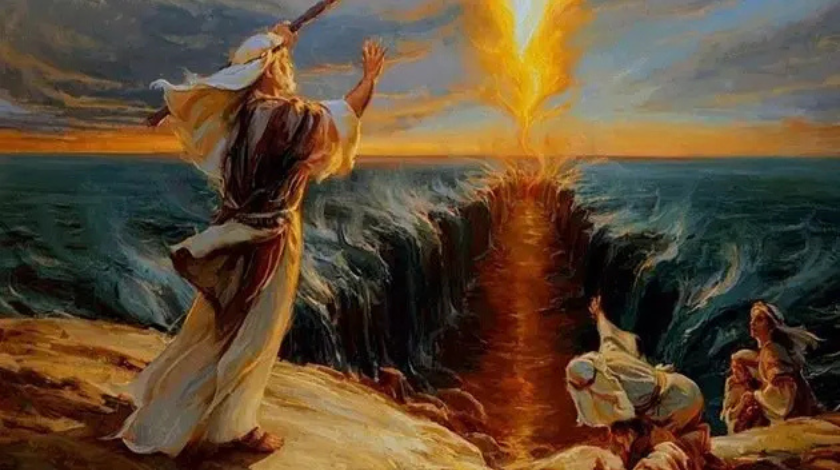Moises Drsobedece a do en el agu e la refriega

The story of Moises transcends mere historical narrative; it embodies the universal themes of struggle, resilience, and moral fortitude. Within the context of “Drsobedece” and “Agu e la Refriega,” Moises’s journey offers valuable lessons that resonate across cultures and generations. This article delves into the life of Moises, examining the significance of his experiences and the lasting impact of his choices on society.
The Life of Moises
Moises was born into a world rife with challenges and opportunities. His early life was shaped by the values instilled in him by his family, who emphasized the importance of integrity and courage. Growing up in a community that faced socio-economic struggles, Moises learned the significance of standing up for what was right, even when the odds were stacked against him.
Throughout his formative years, Moises encountered various challenges that tested his character. He faced adversity not only from external circumstances but also within his own community. The lessons learned during these times would later define his approach to leadership and conflict resolution.
Moises’s relationship with his family played a pivotal role in his development. They provided him with support and guidance, teaching him the values that would later drive his actions. His parents instilled in him a strong sense of justice, compelling him to advocate for those who could not speak for themselves.
Understanding “Drsobedece”
The term “drsobedece” holds significant meaning in the context of Moises’s life. It represents the act of disobedience, particularly in the face of unjust laws or societal norms. For Moises, this was not merely an act of rebellion; it was a moral imperative. He understood that true leadership often requires standing against the tide of popular opinion and confronting injustices head-on.
This concept of disobedience was not born out of a desire for chaos but rather from a deep-seated belief in the necessity of change. Moises recognized that in order to effect real progress, one must sometimes challenge the status quo. His commitment to this principle guided many of his decisions throughout his life.
The Concept of “Agu e la Refriega”
The phrases “agu” and “refriega” are steeped in cultural significance, reflecting the complexities of human existence. “Agu” signifies water, often viewed as a life-giving force. In many cultures, water symbolizes purity, sustenance, and the essence of life itself. In contrast, “refriega” translates to a skirmish or conflict, embodying the struggles and battles we face in our daily lives.
Together, these concepts illustrate the duality of existence: the need for sustenance and the inevitability of conflict. Moises’s life encapsulates this dichotomy, as he navigated the waters of adversity while striving for justice and equity.
The historical and social contexts of “agu” and “refriega” further enrich our understanding of Moises’s journey. Many communities have faced struggles against oppressive forces, often requiring individuals like Moises to rise up and challenge injustice. His story serves as a testament to the strength of the human spirit in the face of adversity.
Moises’s Journey Through Struggle
Throughout his life, Moises encountered numerous challenges that tested his resolve. Each obstacle served as an opportunity for growth, shaping him into the leader he became. From early struggles in his community to larger societal conflicts, Moises’s journey was marked by resilience.
One of the key challenges he faced was the systemic oppression that affected his community. Rather than succumbing to despair, Moises channeled his energy into advocacy and activism. He organized efforts to confront injustices, rallying his peers to join the cause. This initiative required not only courage but also strategic thinking, as he sought to navigate the complexities of activism in a resistant environment.
Moreover, Moises’s embodiment of resilience extended beyond the battlefield of activism. His personal life was marked by trials that tested his faith and determination. Yet, each setback fueled his resolve, reinforcing his belief in the power of collective action. He became a symbol of hope for those around him, inspiring others to join him in the fight for justice.
Specific examples of Moises’s courage and determination abound. Whether it was leading peaceful protests or speaking out against injustices, his actions reverberated throughout his community. These moments serve as reminders of the impact one individual can have in the face of overwhelming odds.
Lessons from Moises’s Story
The lessons gleaned from Moises’s journey are manifold. His story serves as a powerful reminder of the importance of leadership, courage, and moral integrity. Moises exemplifies the notion that true leadership is not merely about authority but about serving others and standing up for what is right.
One of the most significant insights from his life is the value of standing up for one’s beliefs, even when faced with adversity. Moises’s unwavering commitment to justice resonates with those who seek to challenge societal norms. He teaches us that our voices matter and that change often begins with individuals willing to take a stand.
Moises’s story also highlights the complexities of moral dilemmas. Throughout his life, he faced situations where the right course of action was not always clear. His ability to navigate these challenges speaks to the importance of critical thinking and ethical decision-making in leadership. Moises’s choices serve as a guide for those grappling with similar dilemmas in their own lives.
Cultural Impact and Legacy
Moises’s influence extends far beyond his immediate community; it has left an indelible mark on society as a whole. His story continues to resonate with individuals seeking inspiration in their own struggles. The themes of resilience, courage, and moral integrity that define his life serve as a blueprint for future generations.
In modern contexts, Moises’s teachings are particularly relevant. As society grapples with various forms of injustice, his story serves as a reminder that change is possible through collective action. His legacy encourages individuals to engage in their communities, challenge oppressive systems, and advocate for those who cannot speak for themselves.
Moreover, Moises’s story has inspired countless works of literature, art, and activism. His journey has become a symbol of hope for those facing adversity, reinforcing the idea that one person can indeed make a difference. The cultural impact of his life is a testament to the enduring relevance of his teachings.
Conclusion
The life of Moises is a profound exploration of the human spirit’s capacity to overcome adversity. Through the themes of “drsobedece” and “agu e la refriega,” we gain insight into the complexities of struggle and resilience. Moises’s journey serves as an enduring reminder of the importance of standing up for justice, navigating moral dilemmas, and fostering a sense of community.
As we reflect on Moises’s story, we are compelled to consider our own roles in the ongoing struggle for justice and equity. His legacy challenges us to embrace our responsibilities as leaders, advocates, and agents of change. In a world often marked by conflict and division, Moises’s teachings continue to inspire hope and action, urging us to persevere in the face of adversity.
Final Thoughts
In crafting this article, we’ve explored the life of Moises through the lenses of disobedience and struggle. The themes of resilience and moral integrity that define his journey remain vital in today’s society. As we navigate our own paths, let us remember the lessons of Moises and strive to embody the courage and commitment he exemplified.




